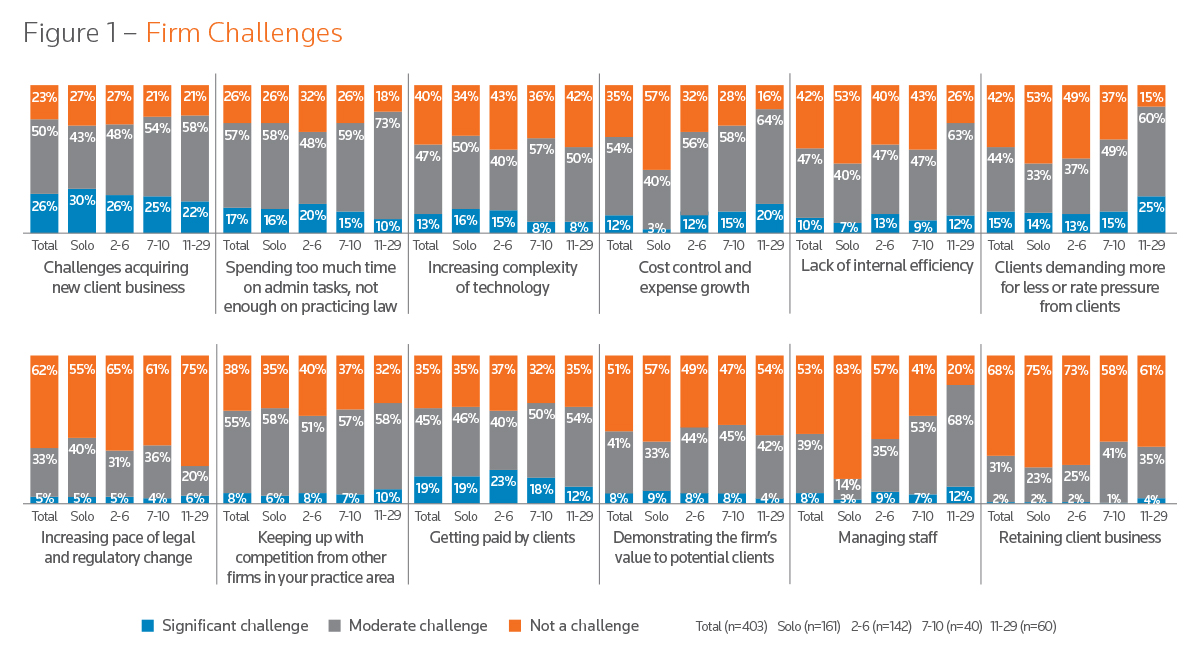Small Law Firms Report: Too Much Time Spent on Administrative Tasks Instead of Practicing Law

Most small law firms continue to face challenges acquiring new clients and are spending too much time on administrative tasks, providing opportunities for competitors who are willing to explore innovative new delivery models and productivity-enhancing technologies.
These are among the findings of Thomson Reuters 2020 State of U.S. Small Law Firms report, which interviewed more than 400 solo and small firm lawyers in April and May.
Ninety-five percent of small law firms consider themselves “successful” or “very successful,” yet 76 percent say that acquiring new client business is a significant or moderate challenge, while 74 percent say the same about spending too much time on administrative tasks instead of practicing law. The study found that small firm lawyers, on average, spend only 60 percent of their time doing client work.
One in five small firms (19 percent) say that getting paid by clients is now a significant challenge, up from 14 percent in the previous survey. The report noted this could be a result of pressure on firms stemming from the COVID-19 outbreak, as well as lack of financial backend and payment systems at many firms.
Despite the acknowledged challenges, only 29 percent of firms have implemented plans to address client acquisition, and only 20 percent have implemented plans to reduce their administrative workload.
“Small firm lawyers have unique challenges, as they are oftentimes not only lawyers but also small business owners and managers in running their practices,” said Mark Haddad, general manager of the Small Law Firm business for Thomson Reuters. “Juggling those roles reduces the amount of time spent practicing law. At the same time, the lack of action by many firms in addressing those challenges means opportunities for competing firms to gain ‘first mover’ advantage by streamlining processes and adopting new technologies to improve efficiency.”
Technology remains a top spend priority for firms; 30 percent say they plan to increase their investment in technology and infrastructure. However, they are not necessarily investing in areas that would address major challenges, such as acquiring clients and reducing administrative burdens. Their planned investments are primarily in technologies such as case management, document management and electronic signatures, rather than front- and back-office functions, such as financial management and accounting, or client-intake software.
For more insights, download the 2020 State of U.S. Small Law Firms report.